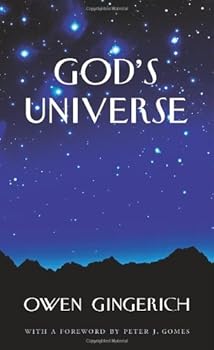

In God’s Universe, Owen Gingerich, a Harvard University astronomer and science historian, tells how in the 1980s he was part of an effort to produce a kind of anti-Cosmos, a television series called Space, Time, and God that was to counter Sagan’s "conspicuously materialist approach to the universe." The program never got off the ground, but its premise survives: that there are two ways to think about science. You can be a theist, believing that behind the veil of randomness lurks an active, loving, manipulative God, or you can be a materialist, for whom everything is matter and energy interacting within space and time. Whichever metaphysical club you belong to, the science comes out the same. In the hands of as fine a writer as Gingerich, the idea almost sounds convincing. "One can believe that some of the evolutionary pathways are so intricate and so complex as to be hopelessly improbable by the rules of random chance," he writes, "but if you do not believe in divine action, then you will simply have to say that random chance was extremely lucky, because the outcome is there to see. Either way, the scientist with theistic metaphysics will approach laboratory problems in much the same way as his atheistic colleague across the hall."
George Johnson is author of Fire in the Mind: Science, Faith, and the Search for Order and six other books. He resides on the Web at talaya.net
No comments:
Post a Comment